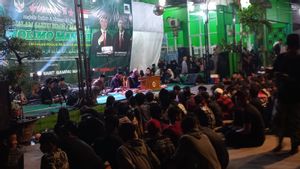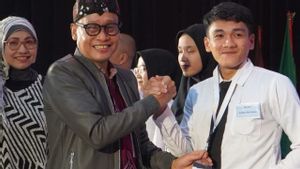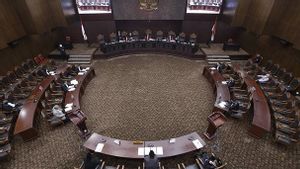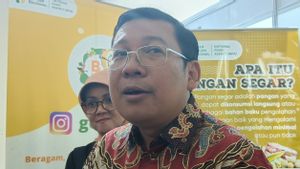
JAKARTA - Academician from Syarif Hidayatullah State Islamic University (UIN) Jakarta, Rulli Nasrullah reminded, the younger generation needs to be mature in using social media to avoid exposure to intolerance and false information (hoax).
According to Rulli, the younger generation, especially Generation Z, has a unstable psychological tendency, so that the spread of fake news and hate in cyberspace can easily influence them.
Therefore, as social media experts, Rulli encourages young people to increase their awareness of using social media.
"The best solution is to do self-introspection to accelerate maturity and understand well their goals when using social media," Rulli said as quoted by ANTARA, Saturday, November 4.
Rulli stated that his concerns about the spread of hoaxes, hate speech, and intolerance towards certain groups wrapped in a political context, especially ahead of the 2024 General Election. This can result in defamation of certain figures or figures.
According to Rulli, acceptance of fake news and intolerance is very dependent on the individual itself. In some cases, it is easier for the younger generation to believe in fake news and intolerance because negative content is spread through their circle of association.
Rulli emphasized the need for efforts to prevent people or groups exposed to negative content from violating the law.
"How bad the person is, when his religion is attacked or frame negatively, his emotional reactions will appear," he added.
Rulli also said that studies on how to fight fake news and intolerance have spread widely. People can proactively obtain this information, both through formal education and the internet.
He appreciated the government's efforts, including the formation of a special team at the Ministry of Education and Culture to develop digital literacy guidelines in schools, aimed at teachers, students, and parents.
The Ministry of Information and Communication has also designed social media ethics that are socialized online and offline. Furthermore, many non-governmental institutions also participate in efforts to eradicate false information and intolerance.
관련 항목:
Rulli emphasized that the fact-checking process has been carried out by many parties, not only the government, including direct training from Google on how to verify information circulating on the internet.
"So, this fact-checker is carried out by various parties. Not only the government, but many private institutions also care about the validity of information circulating in the Indonesian public sphere," said Rulli.
The English, Chinese, Japanese, Arabic, and French versions are automatically generated by the AI. So there may still be inaccuracies in translating, please always see Indonesian as our main language. (system supported by DigitalSiber.id)

















